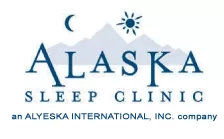
One of the biggest concerns when it comes to sleep studies is whether or not a person’s insurance plan will cover the cost of a sleep study. And this is a perfectly reasonable concern because a lot of health services and procedures can be quite costly including sleep studies.
We recently published an article detailing how much a sleep study costs and gave our base rates for services. The prices listed were those that an individual without insurance would have to pay or the cost to insure that we are not in-network with. These base prices are often not a good reflection of what a patient will actually pay for the study.
To follow up on that article we wanted to clear the air a little further on how health insurance works when it comes to sleep studies. And while it’s nearly impossible to write out exactly what one can expect from their insurance companies, we were able to come up with a few generalized tips and guidelines to follow when figuring out whether or not your sleep study will be covered by your insurance. Along with this, you can check out Taylor Benefits to learn more about a group health insurance plan.
Are Sleep Studies Covered by Insurance?
Does insurance cover sleep studies? The short answer here is YES; sleep studies are covered by almost all insurances. However, some insurance plans have different rules regarding sleep studies than others. For instance, some insurance plans will require that you have a Home Sleep Test (HST) before they will cover an in-lab test (PSG). As HSTs are able to accurately diagnose 75% of patients with sleep apnea that has been properly screened by a physician, it often isn’t necessary for them to order the more expensive (albeit more accurate) PSG study.
Important insurance jargon to be familiar with

In-network.
One of the things you really need to look out for when scheduling a sleep study with a clinic is to find out whether or not your insurance company is “in-network” with the clinic. When a clinic is in-network with your insurance company it means that the two entities have come to an agreed-upon discounted rate for services. For example, our base rate for a CPAP titration is $4,000 (before physician fees), but for insurance companies that we are in-network with that rate is much lower. For a certain company, we’re in-network with the charge is $2700, a $1300 dollar savings off the original price.
What this means for you is that if we are in-network with your insurance, your insurance will pay less for our services at a pre-established rate, and you will pay less of your own money as well. However, if the clinic you are scheduled for is out-of-network, they will either have to pay a higher rate, they will only agree to pay a certain amount leaving you paying more, or they can even deny paying, sticking you with the whole bill.
Before you schedule any sleep study, verify with your insurance which clinics they are in-network with so that you don’t end up stuck with a higher bill.
Deductible
Your deductible is an amount that you must pay before your insurance begins to pay for any services each year.
Let’s say you’re getting a titration study done at our clinic and the in-network cost for your insurance plan is $2700, but your deductible is $1000 and you haven’t had any other services performed this year. You will usually have to pay $1000 of your own money before your insurance begins to pay anything. This doesn’t even mean that your insurance will pay the remaining $1700 in total. The remainder they pay will also depend on your coinsurance.
Coinsurance
Your coinsurance is your shared cost of a health care service. It’s usually figured as a percentage of the total charge for the service. You start paying coinsurance after you’ve paid your plan’s deductible.
Let’s get back to that $1700 bill after your deductible has been met. A standard percentage for coinsurance is 20% meaning that your insurance will pay 80% and you will pay 20% of the remaining $1700. Your insurance will pay $1,360 of this and you will pay $340. However, adding in the deductible your total for services is $1,340 in this scenario.
Copay
A copay is a fixed rate you pay for a health care service when you receive the service. Most copays are for filling prescriptions and rarely for services such as sleep studies, but your insurance may have it written in that you have to pay a small upfront fee at the time of service. The amount can vary depending on the type of service.
Out-of-pocket
Out-of-pocket typically refers to the maximum amount you will pay of your own money for covered medical expenses in a given year.
Many insurance plans will begin with a deductible needing to be met, followed by a coinsurance percentage that you are responsible for up to a given amount. Once that amount is hit and you have paid your maximum out-of-pocket limit, your insurance will usually begin to cover 100% of the charges.
So while having a sleep study done at the beginning of the year could cost you a bit of your own money, once you hit your out-of-pocket expenses, the rest of the services will usually be paid in full by your insurance. These expenses can include your CPAP machines, masks, hoses, and other durable medical equipment (DME) that you would receive for therapy.
It is an especially good idea that as the year begins to close and you have met all of your out-of-pocket expenses, that you make sure that you are current on all of your DME equipment so that your insurance will pay for them, rather than waiting for the beginning of the next calendar year where you will have to assist in payments.
What if you don’t have insurance?
At The Alaska Sleep Clinic, we never turn away any person suffering from a sleep disorder regardless of whether they have insurance or not. We will always be willing to work with patients on covering services.
One of the options for patients without insurance plans is to check out medloanfinance.com. Medloan is a medical finance company that is willing to work with people of all credit backgrounds to help them get needed medical coverage. If you need help getting coverage, visit their website, and within one business day they can notify you of your coverage options.
If you’re paying cash, we also offer a 20% discount on all cash-pay services. We believe that a person’s financial situation should never prevent them from seeking treatment for debilitating sleep disorders, and we are willing to work with people on payment arrangements.
Questions to ask your insurance company and other considerations
Learn as much about your policy as possible. This means knowing your premiums, services that are covered, deductibles, coinsurance, copays, and out-of-pocket expenses.
- If your primary care physician refers you to a clinic, check to make sure that the clinic is in-network with your insurance.
- Find out if your out-of-pocket expenses include your deductible.
- The main reason an insurance company would reject paying for a sleep study is if they deem it medically unnecessary. Your doctor may say you need a study, but your insurance may disagree. Your insurance may agree to have an HST because they believe a PSG not to be medically necessary. Once the HST has been reviewed by a sleep professional and it has been found that a PSG is medically necessary, your insurance may then agree to pay for a PSG. However, if you do the PSG first, they may not agree to pay charges.
- Insurances have very specific guidelines they follow for sleep studies, and they take into account comorbidities and all past medical history. If you are uncertain about coverage, call your insurance company and ask what you need to do for a pre-determination request for a study.
- At The Alaska Sleep Clinic, we do insurance verification as a courtesy to patients to draft up a price quote. However, this price quote is simply an estimate of your portion of the payments and not a definitive price that you will pay.
If you are ready to have a sleep study performed and have checked with your insurance company about your allowable coverage, contact The Alaska Sleep Clinic to schedule a sleep study, and we will help get you on your way to treating your sleep disorder.








 Learn as much about your policy as possible. This means knowing your premiums, services that are covered, deductibles, coinsurance, copays, and out-of-pocket expenses.
Learn as much about your policy as possible. This means knowing your premiums, services that are covered, deductibles, coinsurance, copays, and out-of-pocket expenses.




